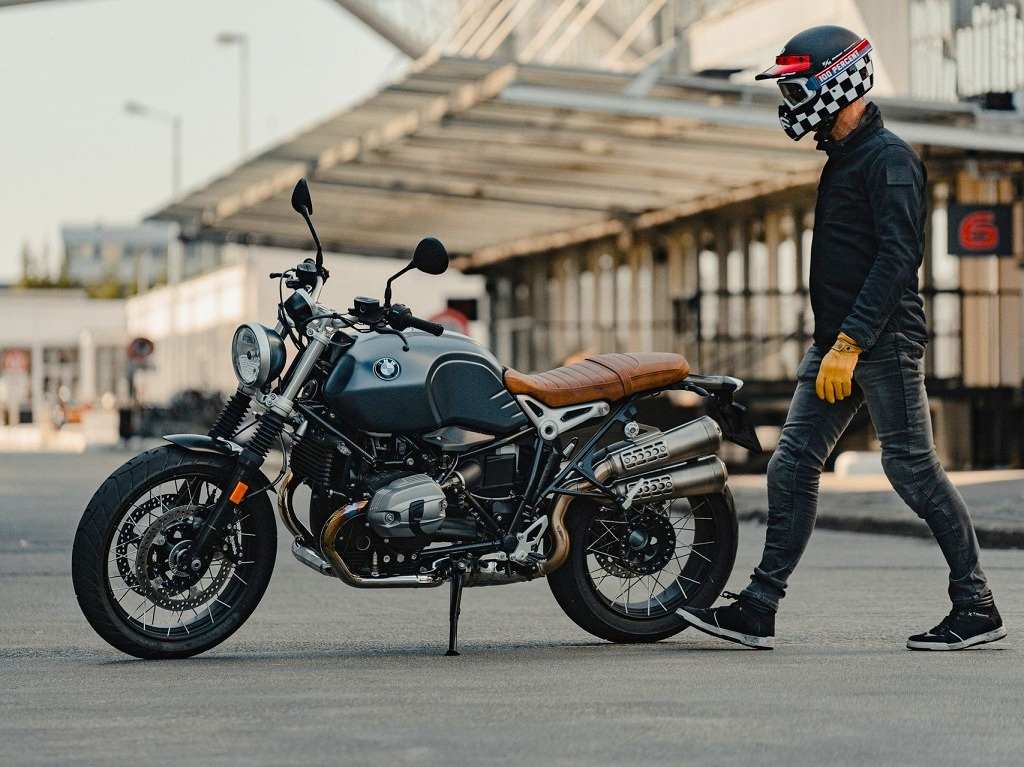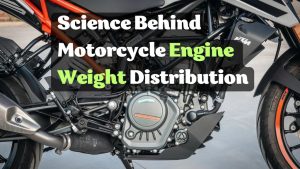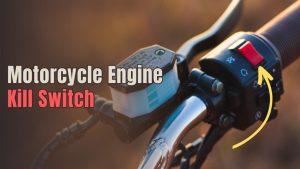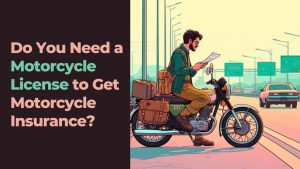Can you drive a motorcycle with a regular license? The answer seems quite apparent. You can ride a motorbike if you can drive a car, right?
Nope!
The reality is a little different. Let’s find out whether it’s legal to ride a motorcycle with a driver’s license.
Can You Drive a Motorcycle with a Regular License?
It’s not legal to ride a motorcycle with a car driving license. At least not in North America, the United Kingdom, or most parts of the world.
In the USA
If you want to drive a car in America and Canada, you need a license. You need a specialized license if you want to drive an 18-wheeler or bus. Fly an airplane or helicopter? You guessed it: there’s another license for that. But what about riding a motorcycle?
Driving a motorcycle requires either an endorsement on your driver’s license (if you already have one) or a separate motorbike operator’s license.
- C class license — Cars
- G class license — General vehicles (a car, van, or small truck)
- M class license — Motorcycles
- No license — Electric bikes or mopeds (under 49cc)
If you’re looking to get the M class license, it takes less effort than getting your regular driver’s license. Most states have a licensing course you can take to get licensed. You’ll need to pass two things:
- the written exam, which covers basics like traffic rules and regulations specific to riding bikes;
- the skills test that makes sure you know how to handle your bike safely.
Many jurisdictions allow driving a two-wheel vehicle up to 49cc at less than 35 mph without a license. So if you have an electric scooter that qualifies and lives in an area that allows it, you can skip the licensing process altogether. However, you will still need to wear safety gear like a helmet.
However, if you get caught driving something more powerful without the proper credentials, you might be in for some stiff penalties.
You can look up the specific requirements on your state’s DMV website or the government’s motor vehicle services.
In the UK
A driver’s license is not enough to ride a motorcycle in the UK too. To begin with, let’s talk about mopeds and electric bikes. You can ride these up to 49cc with no license or on a driver’s license. But anything over that requires a motorcycle license.
What do you need to get one of those? You need to be old enough—17 years old is the minimum age for riding a motorcycle up to 125cc. At 16 years old, you can only ride an electric bike up to 50cc.
Then you will need to take both a theory course and complete compulsory basic training (CBT) to be eligible for a motorcycle license.
Check age and license requirements in the UK for all bike categories here.
Why Does Motorcycling Require a Separate License?
So, why do you need a separate license to drive a motorcycle? The most obvious reason is that it’s much more dangerous than driving a car.
According to the National Highway Traffic Safety Administration, motorcyclists are about 29 times more likely to die in a crash than people in a passenger vehicle. Their injury risk is four times higher than other drivers on the road. A total of 5,014 bikers died in road accidents in 2019 alone.
Motorcyclists’ injury risk is 4 times higher than other drivers on the road.
National Highway Traffic Safety Administration
So, it’s evident that bikers need different driving skills to survive out there. Let’s see how riding a motorcycle is different from driving a car:
The control mechanism
A motorcycle also has very different controls than a car. Both vehicles have an accelerator, brake, and steering wheel, but their operations are quite different.
Let’s take one example: brake control. You can control the brakes on all wheels with only one brake pedal in a car. But different brake systems work in a motorbike to steer the front and rear wheels.
The friction of the wheels
Motorcycles have fewer wheels to create friction with the ground, and friction is what prevents the tires from sliding and helps them stop quickly upon applying the brake.
Without friction, we would all be sliding around like hockey pucks on the ice. So, motorcycles turn more easily for having less friction, but they can slip more frequently.
Cars have much heavier bodies and engines, while motorcycles are much lighter. And since they have more lightweight engines, they can accelerate faster than cars can. If you were to accelerate too fast on your bike, you could lose control of it and crash into something.
Weight distribution
Motorcycles don’t weigh very much at all—on average. When the average motorcycle weight is 400 pounds, it’s over 4,000 for cars. Just imagine the difference!
Because of that difference in weight, motorbikes are more susceptible to losing control when crashing onto something. Cars generally feel more secure and stable because they have four wheels with better friction.
Stability
Motorbike’s design makes them less stable than cars when drivers have to make sharp turns or abrupt movements on the road. It’s because most motorcycles only have two wheels. Also, you need to balance it actively to keep it upright.
What Happens for Driving Without a Proper License
Riding motorbikes without a proper license is illegal. For detailed information, check this article.
The penalties can be pretty severe if you’re caught driving without a motorcycle license. In most states, you will be ticketed and have to go to court. You might also have your bike impounded or, worse yet, get arrested.
SEE MORE: The Consequence of Driving Motorcycle Without License
Driving without a license is unsafe for yourself and others on the road. So please, do yourself and everyone else a favor and make sure you have the proper license before getting behind the wheel of a motorcycle.
What are the motorcycle license requirements in your state or country? Share with us in the comments below.
FAQs about Riding a Motorcycle Without a Regular License
Can I legally drive a motorcycle without a motorcycle license?
No, driving a motorcycle without a license is illegal and punishable by law in most places. Motorcycle licenses exist to ensure riders have proper training on safety regulations and operating skills.
What are the penalties for riding a motorcycle without a license?
Penalties vary by state but can include fines up to $1000, license suspension, jail time, impoundment of the motorcycle, and points added to your driving record. If involved in an accident, insurance claims may also be denied.
How dangerous is riding a motorcycle without proper training?
Extremely dangerous. Untrained motorcycle riders are more likely to have accidents due to not knowing proper riding techniques, hazard avoidance skills and limits of control. Many fatalities involve riders with little or no formal training.
How can I learn to ride a motorcycle without a license?
The safest option is to take an official motorcycle safety course which teaches skills in a controlled environment. Some resources recommend learning from an experienced rider on private property to minimize risk, but this may not cover all aspects of safe riding.
Will they take away my car license if I ride without a motorcycle license?
It depends. Some jurisdictions may suspend your standard driver’s license as punishment for riding a motorcycle without a motorcycle license. However, this is not done in all places. Each jurisdiction has different penalties.
What should I do if pulled over while riding without a motorcycle license?
Stay calm. Pull over promptly and turn off your bike. Comply respectfully with the officer’s instructions. Be honest that you do not have a motorcycle license. The officer will likely issue a citation. Avoid making excuses as this may only make the consequences worse.
Can my car insurance cover me if riding without a motorcycle license?
Most likely not. Standard auto insurance policies do not cover damages, injuries or liability resulting from operating motorcycles without a valid motorcycle license. Riding illegally generally voids any insurance coverage. You would be responsible for all costs associated with an accident.
Can motorcycles be taken as part of the penalty for riding without a license?
Potentially yes. For repeat or serious offenses related to riding without a license, authorities in some jurisdictions may impose vehicle forfeiture or impoundment as an additional penalty, meaning they confiscate and sell the motorcycle. However, this is not common and depends on local laws.




